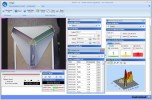Authors
L. Sonnier, G. Le Pen, A. Hartmann, J.-C. Bizot, F. Trovero et al.
Lab
Centre National de la Recherche Scientifique, Unité Mixte de Recherche 8542, Development and Evolution of the Nervous System, Paris, France.
Journal
The Journal of Neuroscience
Abstract
Engrailed1 and Engrailed2 (En1 and En2) are two developmental genes of the homeogene family expressed in the developing midbrain. En1 and, to a lesser degree, En2 also are expressed in the adult substantia nigra (SN) and ventral tegmental area (VTA), two dopaminergic (DA) nuclei of the ventral midbrain. In an effort to study En1/2 adult functions, we have analyzed the phenotype of mice lacking one En1 allele in an En2 wild-type context. We show that in this mutant the number of DA neurons decreases slowly between 8 and 24 weeks after birth to reach a stable 38 and 23% reduction in the SN and VTA, respectively, and that neuronal loss can be antagonized by En2 recombinant protein infusions in the midbrain. These loss and gain of function experiments firmly establish that En1/2 is a true survival factor for DA neurons in vivo. Neuronal death in the mutant is paralleled by a 37% decrease in striatal DA, with no change in serotonin content. Using established protocols, we show that, compared with their wild-type littermates, En1+/_ mice have impaired motor skills, an anhedonic-like behavior, and an enhanced resignation phenotype; they perform poorly in social interactions. However, these mice do not differ from their wild-type littermates in anxiety-measuring tests. Together, these results demonstrate that En1/2 genes have important adult physiological functions. They also suggest that mice lacking only one En1 allele could provide a novel model for the study of diseases associated with progressive DA cell death.
BIOSEB Instruments Used:
Smart 3.0 - Video Tracking System (SMART30)

 Pain - Thermal Allodynia / Hyperalgesia
Pain - Thermal Allodynia / Hyperalgesia Pain - Spontaneous Pain - Postural Deficit
Pain - Spontaneous Pain - Postural Deficit Pain - Mechanical Allodynia / Hyperalgesia
Pain - Mechanical Allodynia / Hyperalgesia Learning/Memory - Attention - Addiction
Learning/Memory - Attention - Addiction Physiology & Respiratory Research
Physiology & Respiratory Research
 Pain
Pain Central Nervous System (CNS)
Central Nervous System (CNS) Neurodegeneration
Neurodegeneration Sensory system
Sensory system Motor control
Motor control Mood Disorders
Mood Disorders Other disorders
Other disorders Muscular system
Muscular system Joints
Joints Metabolism
Metabolism Cross-disciplinary subjects
Cross-disciplinary subjects Happy new year 2025
Happy new year 2025 